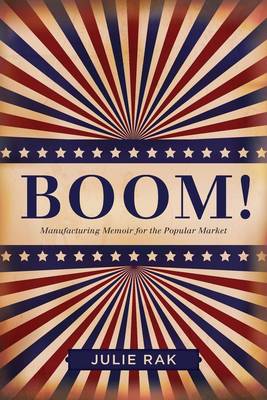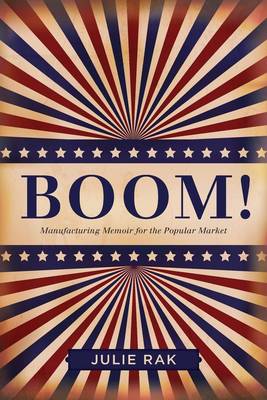
- Afhalen na 1 uur in een winkel met voorraad
- Gratis thuislevering in België vanaf € 30
- Ruim aanbod met 7 miljoen producten
- Afhalen na 1 uur in een winkel met voorraad
- Gratis thuislevering in België vanaf € 30
- Ruim aanbod met 7 miljoen producten
Omschrijving
Since the early 1990s, tens of thousands of memoirs by celebrities and unknown people have been published, sold, and read by millions of American readers. The memoir boom, as the explosion of memoirs on the market has come to be called, has been welcomed, vilified, and dismissed in the popular press. But is there really a boom in memoir production in the United States? If so, what is causing it? Are memoirs all written by narcissistic hacks for an unthinking public, or do they indicate a growing need to understand world events through personal experiences? This study seeks to answer these questions by examining memoir as an industrial product like other products, something that publishers and booksellers help to create.
These popular texts become part of mass culture, where they are connected to public events. The genre of memoir, and even genre itself, ceases to be an empty classification category and becomes part of social action and consumer culture at the same time. From James Frey's controversial A Million Little Pieces to memoirs about bartending, Iran, the liberation of Dachau, computer hacking, and the impact of 9/11, this book argues that the memoir boom is more than a publishing trend. It is becoming the way American readers try to understand major events in terms of individual experiences. The memoir boom is one of the ways that citizenship as a category of belonging between private and public spheres is now articulated.
Specificaties
Betrokkenen
- Auteur(s):
- Uitgeverij:
Inhoud
- Aantal bladzijden:
- 258
- Taal:
- Engels
- Reeks:
- Reeksnummer:
- nr. 49
Eigenschappen
- Productcode (EAN):
- 9781554589395
- Verschijningsdatum:
- 24/04/2013
- Uitvoering:
- Paperback
- Formaat:
- Trade paperback (VS)
- Afmetingen:
- 152 mm x 226 mm
- Gewicht:
- 362 g

Alleen bij Standaard Boekhandel
Beoordelingen
We publiceren alleen reviews die voldoen aan de voorwaarden voor reviews. Bekijk onze voorwaarden voor reviews.









